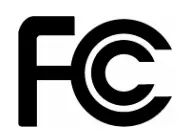
What is FCC EMC certification?
fcc Electromagnetic Compatibility (EMC) certification is a certification issued by the Federal Communications Commission (FCC) in the United States for radio frequency devices to ensure their electromagnetic compatibility.

Definition:
FCC Electromagnetic Compatibility (EMC) certification refers to a series of tests and evaluations under FCC regULation to ensure that radio frequency devices do not cause unacceptable electromagnetic interference to other radio devices or systems during use, and that they are not affected by interference from other devices or systems.
Purpose:
The primary goal of FCC EMC certification is to protect radio spectrum resources, ensure smooth radio communication, and safeguard public health and safety.
Requirements for FCC emc certification:
- Electromagnetic Radiation Limits: The FCC sets limits on the electromagnetic radiation emitted by radio frequency devices within specific frequency ranges. The emissions from the device must remain below these limits during operation.
- Interference Resistance: Devices must have a certain level of resistance to electromagnetic interference, meaning they should function properly even when subjected to interference from other devices or systems.
- Technical Standards: The FCC has established a series of technical standards, including test methods and requirements for electromagnetic compatibility. Devices must comply with these standards to pass the certification.
FCC EMC certification process:
1. Application: The device manufacturer or importer submits an application to the FCC, including relevant product information and a testing plan.
2. Testing: The device undergoes electromagnetic compatibility testing at an FCC-recognized testing laboratory. Tests typically include radiated emission tests, conducted emission tests, and immunity tests.
3. Report Submission: After testing, the laboratory submits a test report to the FCC, detailing the results and whether the device meets FCC technical standards.
4. Review: The FCC reviews the submitted test report to confirm whether the device meets electromagnetic compatibility requirements.
5. Certification: If the device meets the FCC's requirements, the FCC issues a certification, allowing the device to be sold and used in the U.S. market.
FCC EMC Certification Mark:
The FCC EMC certification mark usually consists of the letters "FCC" and a specific identifier, indicating that the device has passed the FCC's electromagnetic compatibility certification. This mark must be placed in a prominent location on the device for recognition by consumers and regulatory agencies.
Importance of FCC EMC certification:
- Market Access: FCC EMC certification is a mandatory requirement for radio frequency devices to enter the U.S. market. Devices that fail to obtain certification cannot be legally sold or used in the U.S.
- Ensuring Communication Quality: Devices that pass FCC EMC certification help ensure that they do not interfere with other devices or systems during radio communication, thus ensuring communication quality.
- Protecting Public Health and Safety: Electromagnetic radiation may have potential effects on human health. FCC EMC certification limits a device's electromagnetic radiation levels to protect the public from unnecessary exposure to harmful radiation.
China’s JJR Laboratory is an IEC 17025 and FCC-recognized third-party lab that offers fcc testing services. Located in China, we can help you save up to 30% on certification testing costs.
Email:hello@jjrlab.com
Write your message here and send it to us
 How Do You Get a CE Mark
How Do You Get a CE Mark
 IEC 60529 IP Rating Ingress Protection Standard
IEC 60529 IP Rating Ingress Protection Standard
 IEC 60601-1 Medical Electrical Equipment Basic Saf
IEC 60601-1 Medical Electrical Equipment Basic Saf
 European Authorized Representative Medical Devices
European Authorized Representative Medical Devices
 EU Waste Electrical and Electronic Equipment Direc
EU Waste Electrical and Electronic Equipment Direc
 How to Get CE Approval
How to Get CE Approval
 Accelerated Ageing Test
Accelerated Ageing Test
 IP Ingress Protection Testing
IP Ingress Protection Testing
Leave us a message
24-hour online customer service at any time to respond, so that you worry!




